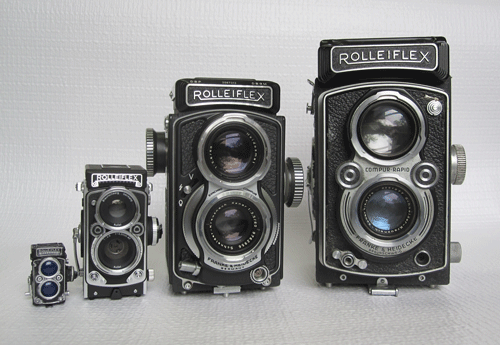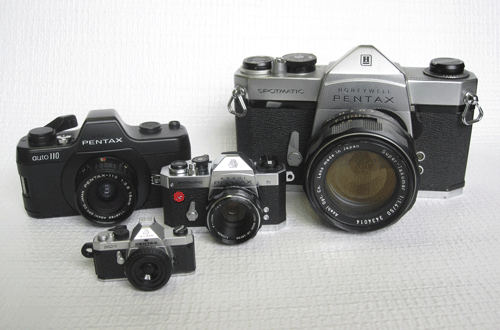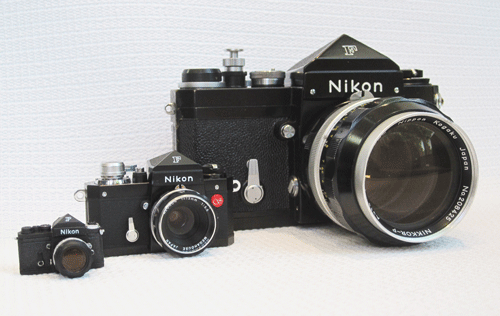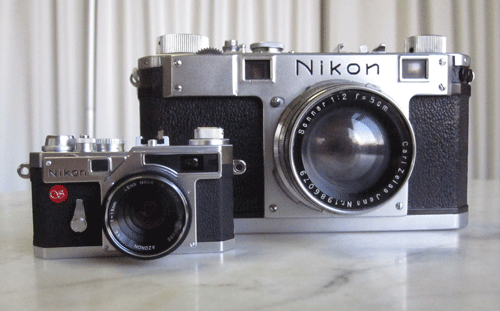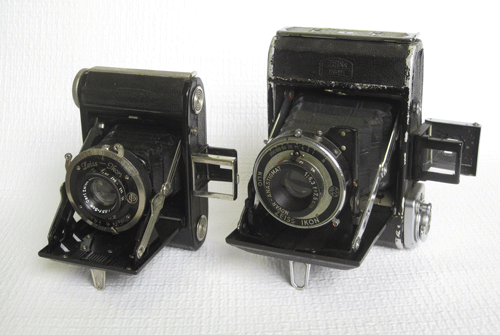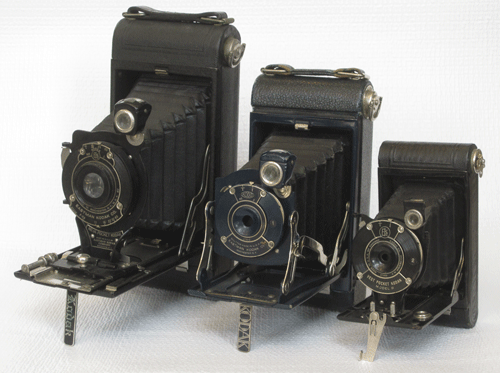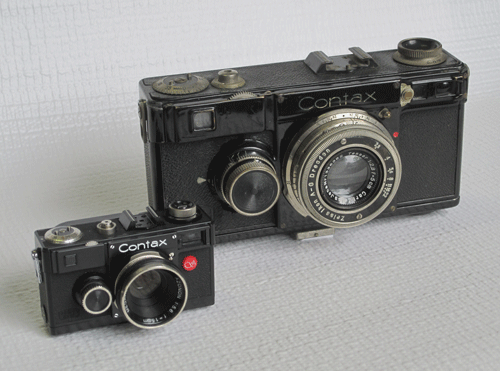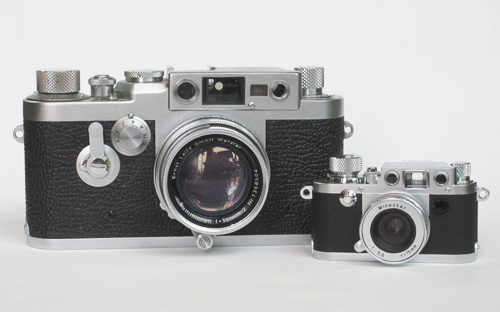|
ROLLEIFLEX From the left, are pictured a "Glico" replica of a Rollei 2.8F, a Sharan/Minox digital version of the same camera, a Rollei Black Baby made by Rollei from the 1930's to the 1960's, and a full-size Rolleiflex twin lens reflex, using 120 film. The "mini" camera (2nd from left) is part of the offering from Sharan/Minox and takes digital images. An identical mini is available which uses Minox film. The Black Baby, a limited-production 1960's variation of the 6x6 TLR, started off as a black model in 1931, but was changed to a grey body for the next 2 versions. It was made by Rollei and takes 4cm x 4cm photos on 127 film. |
|
|
|
PENTAX
Another classic is the
35mm.
single-lens reflex Pentax. The company also produced a smaller version, the Pentax 110 (on the far left) which takes 110 Instamatic film. Like its big-brother, this one has interchangable lenses and a tele-converter. The mini version in the middle is from the Classic Collection of Sharan and takes photos using Minox film. The tiniest Pentax camera (in the front) is actually a key fob and does not take pictures. |
|
NIKON F The 3 Nikons pictured (from the left) are a micro-sized version (like the Rollei above, it came from the Glico candy company), a mini Nikon F from Sharan that takes Minox film to make negatives 8mm x 11mm, and a full-sized Nikon F, which uses 35mm film. |
|
|
|
NIKON SP Nikon was also well known for its rangefinder cameras made after World War II. The smaller version pictured on the left is from Sharan and takes 8mm x 11mm negatives on Minox film. The larger camera is a Nikon S model and uses standard 35mm film. |
|
IKONTA The Baby Ikonta (520/18) on the left is from the 1930's and takes 3cm x 4cm negatives on 127 film. The full-size Ikonta (521) on the right takes 120 film and makes 4.5cm x 6cm negatives. Both were made by Zeiss Ikon in Germany. |
|
|
|
KODAK FOLDING The Kodak folding cameras pictured here are from the time circa World War I and range in negative size from 4.5cm x 6cm Vest Pocket Model B (on the right), to the 6cm x 9cm No. 1 Pocket Junior (in the middle), to the 2 1/2" x 4 1/4" No. 1A Pocket Kodak (on the left). |
|
CONTAX The Contax I, a 35mm rangefinder camera from Zeiss Ikon of Germany, was first manufactured in 1932. The full-size version is shown on the right; the smaller version from Sharan, on the left, takes Minox film and produces negatives 8mm x 11mm. |
|
|
|
LEICA IIIf The first Leica, built by Oscar Barnack in 1913 when he was an employee of Leitz, may not have been the first 35mm still camera made, but the brand became the most popular. The full-size Leica IIIf [or "3F"] model (on the left) was produced in the early 1950's. The mini-version, created by Sharan and using Minox film, is one of 3 Leica models ("If," "IIIf," and "M3") replicas produced by both Sharan and Minox. |
